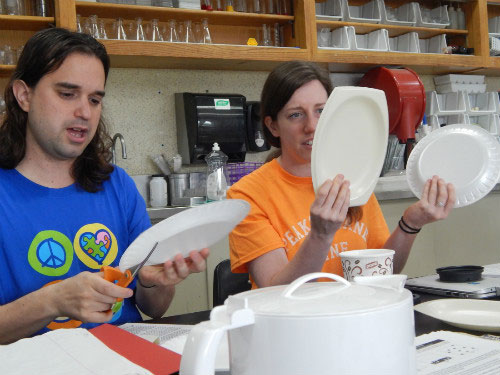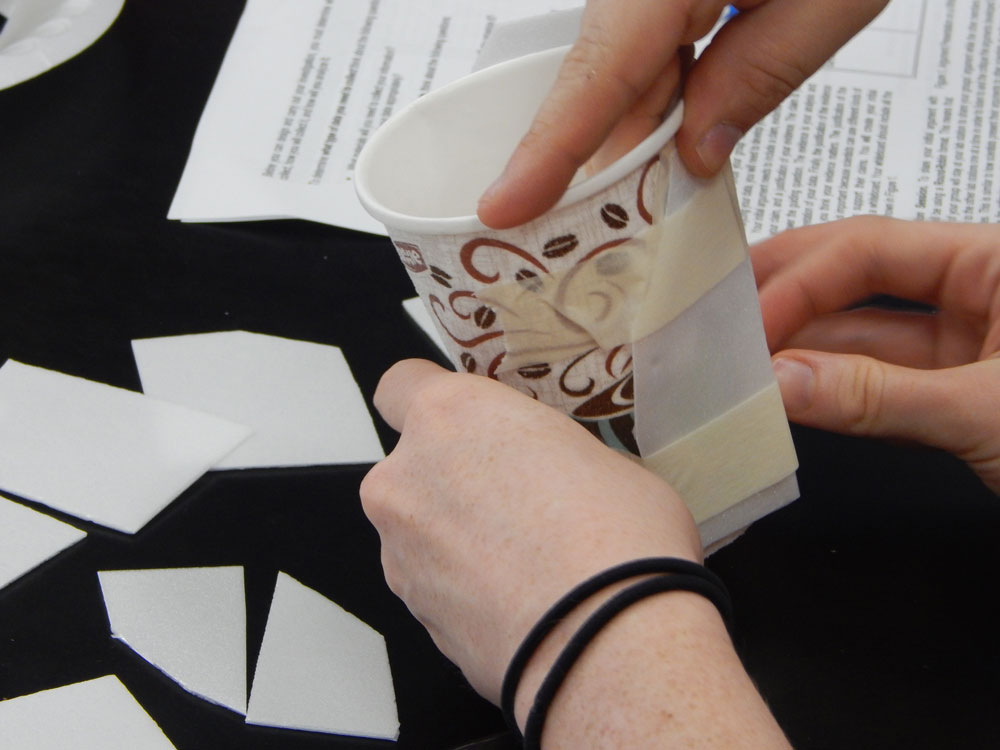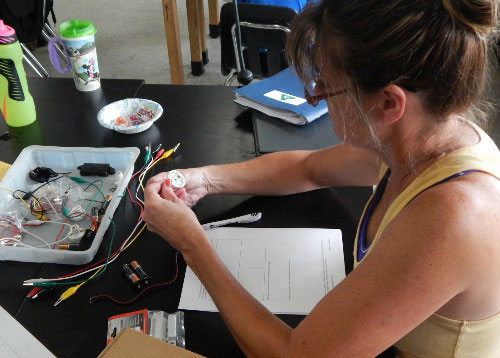Thursday, August 25, 2016
For Immediate Release
Stoughton Public School Teachers Advance Their Use of Science Practices for Instruction and Assessment in the Secondary Science Classroom with MITS
What do teachers do with their summer vacation? Stoughton Public School teachers developed their perceptions of inquiry-based instruction, science practices and standards through the Museum Institute for Teaching Science (MITS) Customized School Services program. By participating in a series of professional development workshops that began in Fall of 2014, educators across the Stoughton Public Schools have increased their proficiency and comfort with using and assessing inquiry-based instruction.
From June 23rd to 29th, 2016, eleven teachers from O’Donnell Middle School and Stoughton High School participated in a five-day workshop, Using Science Practices for Instruction and Assessment in the Secondary Science Classroom, that examined how science practices can be used effectively to build students’ understanding of core science content.
The course was founded on the newly revised Massachusetts Science and Technology/Engineering Curriculum Framework. The Framework states:
“By the end of grade 12, all students must have an appreciation for the wonder of science, possess sufficient knowledge of science and engineering to engage in public discussions on related issues, and be careful consumers of scientific and technological information and products in their everyday lives.”
Stoughton Public School District takes an active role in shaping students’ engagement with science content. To meet the goals in the Framework and to help expand Stoughton teachers’ appreciation for the importance of inquiry-based instruction, the Museum Institute for Teaching Science education specialists introduced hands-on projects that required minds-on investigation. Inquiry-based instruction incorporates activities that excite students’ natural inclination towards investigation to develop their knowledge and understanding of science ideas.
Teachers tested activities from the student perspective and gained valuable insights through first-hand learning experiences.
“A few teachers were extremely enthusiastic about our ‘questioning’ activity: providing learners with a collection of related objects (reflective objects, objects from the sea, various powders with different properties, etc.), and collecting their questions using a specific protocol.” – Brianna Wilkinson, MITS Assistant Director of Education
Since the participating teachers taught diverse science disciplines and grade levels, activity topics covered a wide range. Examples included building electrical circuits, modeling chemical reactions, engineering the best coffee cup, and solving a mystery with forensic techniques. Formative assessment tools were also provided during the workshop as means of continually “checking in” on student progress (as opposed to summative assessment that is typically administered at milestones, like the end of a lesson, unit, or year). To apply their experiences, participants developed lesson plans adapting their current curriculum to add more inquiry opportunities and designing new activities that lead to student-directed (open inquiry) investigations. Teachers left the workshop with smiles, but the real results will be seen when students are exposed to these re-imagined inquiry-based science lessons.
“I got a tremendous amount of ideas and resources this past week. I look forward to using many of these practices and inquiry next year.” – Rhonda Masciarelli (O’Donnell Middle School, 6th Science)
The Museum Institute for Teaching Science specializes in providing hands-on, minds-on, inquiry-based STEM professional development for formal and informal educators. For more information, visit www.mits.org or call 617-328-1515.



